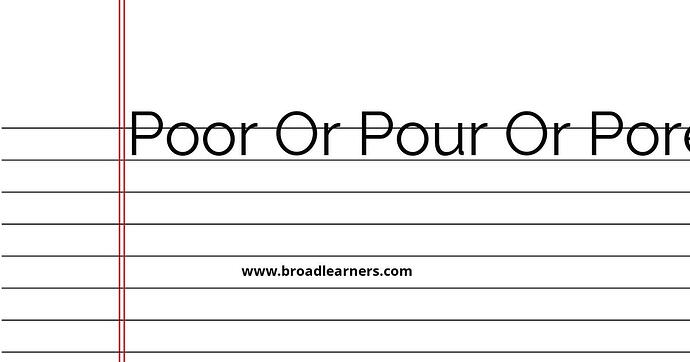'Poor', 'pour', and 'pore' are commonly confused words in English grammar. Understanding the difference between 'poor', 'pour', and 'pore' is important to use them correctly in written and spoken English.
'Poor' is an adjective that describes someone or something lacking wealth, resources, or quality. It is used to indicate a state of poverty or inadequacy.
'Pour' is a verb that means to cause a liquid or substance to flow from a container in a continuous stream. It is used to describe the action of pouring.
'Pore' is a noun or a verb that refers to a tiny opening or hole, usually found on the surface of the skin or in a material. It is used to describe a small opening or to focus attention or study on something.
Let's take a closer look at the meanings and usage of 'poor', 'pour', and 'pore'.
| 'Poor' | 'Pour' | 'Pore' |
|---|---|---|
| The word 'poor' is an adjective that describes a lack of wealth or resources. | The word 'pour' is a verb that means to cause a liquid to flow from a container. | The word 'pore' can be a noun or a verb that refers to a tiny opening or hole. |
|
|
|
To remember the difference between 'poor', 'pour', and 'pore', it can be helpful to associate 'poor' with lack of wealth or resources, 'pour' with the action of pouring liquid, and 'pore' with tiny openings or focusing attention.
Here are some examples of correct usage:
- She comes from a poor family. (describing a lack of wealth)
- Can you pour me a cup of coffee? (requesting the action of pouring)
- I noticed a pore on my cheek. (referring to a small opening on the skin)
- He spent hours poring over the books for his exam. (focusing attention or studying)
Remembering the correct usage of 'poor', 'pour', and 'pore' will improve your grammar and communication skills.
